 Long time PFS member Frank Van Dun‘s work Het Fundamenteel Rechtsbeginsel (originally published 1983 and 2008)1 has been translated into English as The Fundamental Principle of Right/Law: An Essay on the Foundations of Right/Law, trans. Rembert Moesick (pdf). (Grok suggests the following title: The Fundamental Principle of Right: Foundations of Justice and Law, but we are going with the translator’s title for now.)2 It may be published more formally later and a list of referenced works by author is being prepared by the translator, which I will upload when it is available. For now, enjoy.
Long time PFS member Frank Van Dun‘s work Het Fundamenteel Rechtsbeginsel (originally published 1983 and 2008)1 has been translated into English as The Fundamental Principle of Right/Law: An Essay on the Foundations of Right/Law, trans. Rembert Moesick (pdf). (Grok suggests the following title: The Fundamental Principle of Right: Foundations of Justice and Law, but we are going with the translator’s title for now.)2 It may be published more formally later and a list of referenced works by author is being prepared by the translator, which I will upload when it is available. For now, enjoy.
For more by Van Dun:
- Frank’s website
- “Argumentation Ethics and The Philosophy of Freedom”
- “The Logic of Law“
- “On the Philosophy of Argument and the Logic of Common Morality”
- “Law, Argumentation Ethics, Hoppe and Me,” in A Life in Liberty: Liber Amicorum in Honor of Hans-Hermann Hoppe, edited by Jörg Guido Hülsmann & Stephan Kinsella (Houston, Texas: Papinian Press, 2024)
- “Reply to Andrew Young’s “Argumentation Ethics and the Question of Self-Ownership”.” The Journal of Private Enterprise 30(3) (Fall 2015): 89–102
- Young, Andrew T. 2015. “Argumentation Ethics and the Question of Self-Ownership.”The Journal of Private Enterprise 30(3) Fall: 79–88
- “Against Libertarian Legalism: A Comment on Kinsella and Block.” J. Libertarian Stud. 17, no. 3 (2003): 63–90
- “Argumentation Ethics and the Philosophy of Freedom.” Libertarian Papers 1 (19) (2009)
- “Economics and the Limits of Value-Free Science.” Reason Papers 11 (Spring 1986): 24
- “Freedom and Property: Where They Conflict.” In Property, Freedom, and Society: Essays in Honor of Hans-Hermann Hoppe, edited by Jörg Guido Hülsmann and Stephan Kinsella. Auburn, Ala.: Mises Institute, 2009
- “On the Philosophy of Argument and the Logic of Common Morality.” In Argumentation: Approaches to Theory Formation, edited by. E.M. Barth and J.L. Martens. Amsterdam: John Benjamins, 1982
Previous PFS talks:
- PFP247 | Frank Van Dun, “Socialization and the Loss of Law-based Accountability—A Philosophical Reflection” (PFS 2022)
- PFP198 | Frank van Dun, What Did the Reformation Reform? (PFS 2018)
- PFP141 | Frank Van Dun, On the Philosophical Foundations of Libertarianism (PFS 2015)
- PFP061 | Frank Van Dun, Property and Punishment: Restitution and Retribution (PFS 2010)
I also asked Grok to summarize and analyze Van Dun’s book and compare it to my and Hoppe’s views.
Summarize Van Dun’s book, attached. Provide an overall summary and analysis, with topical headings as necessary and appropriate. Use up to two pages. Follow this with a chapter by chapter summary, with each chapter summary between 1 and 6 paragraphs, as needed. In your overall summary and analysis, discuss to what extent Van Dun’s views are compatible with the views of Hoppe and Kinsella. Where might Hoppe and Kinsella differ with Van Dun? For the views of Hoppe and Kinsella, consult the attached documents (Hoppe: A Theory of Socialism and Capitalism, The Economics and Ethics of Private Property, The Great Fiction: Property, Economy, Society, and the Politics of Decline, Economy, Society, and History, Kinsella, Legal Foundations of a Free Society) as well as writing found in https://stephankinsella.com/lffs/ and https://hanshoppe.com/ and in Kinsella, Van Dun, Barnett on Freedom vs. Property, Van Dun on Freedom versus Property and Hostile Encirclement, On “Unowned” State Property, Legal Positivism, Ownership vs. Possession, Immigration, Public Roads, and the Bum in the Library, Reply to Van Dun: Non-Aggression and Title Transfer, “Argumentation Ethics and Liberty: A Concise Guide” (2011) and Supplemental Resources, Intellectual Property and the Structure of Human Action.
Grok Analysis and Summary
Overall Summary
Core Thesis and Structure
Frank van Dun’s The Fundamental Principle of Right/Law (translated from Dutch, ca. 1980s original with 2020s edition) is a systematic defense of natural law as the logical foundation for a free society. The “fundamental principle” posits that every human is a sovereign subject of law/right (recht), entitled to absolute control over their means (body and acquired resources) and immune from interference without consent. This yields a non-aggression axiom: no one may use another’s means coercively. Law/right emerges a priori from human action (homo agens), rationality, and the need to resolve conflicts over scarce resources via voluntary contracts, rejecting state coercion as institutionalized violence. The book spans philosophy of law, ethics, and social theory, critiquing alternatives like positivism and egalitarianism while outlining a “samenleving” (coexistent society of sovereigns) versus coercive “maatschappij” (organized society).
Key Themes
- Sovereignty and Non-Aggression: Individuals are ends-in-themselves, not means; aggression (unpermitted interference) is injustice, punishable via restitution and self-defense.
- Property and Contract: Ownership arises from self-ownership and homesteading; contracts transfer titles but cannot alienate sovereignty (e.g., no enforceable slavery).
- Critique of the State: Politics imperializes society, enforcing “positive” freedom (coerced equality) over true liberty; fiscal extraction and protection monopolies are unjust.
- Ethics and Equality: Law/right precedes morality; egalitarianism masks master-slave dynamics, while true equality is formal (equal sovereignty).
The work’s a priori method—deducing norms from action’s logic—mirrors Austrian economics, emphasizing coherence over utility. Van Dun’s prose is dense, translator’s notes clarify Dutch nuances (e.g., recht as “straight/right/justice” vs. legislative wet).
Analysis
Van Dun revives classical liberal natural law (Locke, Kant influences) in a libertarian frame, prioritizing logical universality over relativism. Strengths include rigorous rejection of positivist “law as command” and mystical consensus, grounding liberty in human agency. Weaknesses: abstractness may undervalue praxeological economics (e.g., less on market processes than Mises/Hoppe); assumes high rationality, risking utopianism. Overall, it’s a philosophical bulwark against statism, advocating “fiat justitia ne pereat mundus” (justice to save the world).
Compatibility with Hoppe and Kinsella
Van Dun aligns closely with Hoppe’s argumentation ethics (A Theory of Socialism and Capitalism, The Economics and Ethics of Private Property) and Kinsella’s title-transfer theory (Legal Foundations of a Free Society). All derive rights from rational action: Van Dun’s sovereign self-ownership echoes Hoppe’s performative contradiction (denying liberty contradicts arguing) and Kinsella’s body-integrity as baseline property. Non-aggression is core; state as aggression fits Hoppe’s democracy critique (The Great Fiction) and Kinsella’s anti-IP/anti-statism (stephankinsella.com/lffs). Attached Hoppe texts reinforce absolute private property against socialism; Kinsella’s LFFS ch. 12 praises Van Dun’s logic while refining it.
Points of Divergence
Kinsella critiques Van Dun’s potential prioritization of “freedom” over property in edge cases (e.g., “hostile encirclement” allowing trespass for survival; see Kinsella 2009/08 post, 2024/10 article). Kinsella insists property defines freedom—no conflicts, as rights are exclusionary limits on action, not use-rights (LFFS ch. 12; 2025/05 post on unowned property). Hoppe may diverge on immigration: Van Dun’s open “samenleving” risks covenant erosion, per Hoppe’s physical removal advocacy (hanshoppe.com; Property and Freedom 2025/10 talk). Kinsella’s reply (LFFS ch. 12) disputes Van Dun’s Rothbard interpretation on inalienability, favoring enforceable contracts sans body-alienation.
Chapters:
Overall Summary
Frank van Dun’s “The Fundamental Principle of Right/Law” presents a philosophical foundation for law based on the principle that every human is a sovereign subject of law, meaning each has the right to self-determination over their own means without infringing on others. The book distinguishes “right/law” (recht) as justice from “legislation” (wet) as state decrees, critiquing positivist, collectivist, and supernaturalist theories. It explores philosophical, ethical, and political implications, advocating for a society* of free individuals over a politicized polis, and concluding that the state is incompatible with true law/right.
Chapter 1: Right/Law and Philosophy (pp. 1-31)
The chapter introduces the fundamental principle of law/right as the idea that every human is a sovereign subject with absolute self-determination over their own means, both somatic and extra-somatic. Van Dun emphasizes that this is not a mere tautology but a substantive claim rooted in the reality of human action and scarcity. He argues that law/right is about material justice, distinct from legislation, and critiques any attempt to equate the two, noting that the principle applies to all interpersonal interactions where conflicts arise from differing uses of scarce resources.
Van Dun discusses “Homo Agens,” the acting human, who faces a world of alternatives requiring choices on beliefs, desires, and actions. Practical philosophy, including law/right, addresses these choices, with law/right being the most fundamental branch because it resolves conflicts stemming from unique individual perspectives. Without law/right, actions remain indeterminate, as multiple viewpoints on the same resources lead to inevitable disputes, underscoring the need for a principle that harmonizes self-determination without assuming unity.
Positivism is critiqued for accepting existing legal systems as given without questioning their justice, treating them as facts rather than evaluating their moral validity. Van Dun argues that positivism reduces philosophy of law to a descriptive exercise, ignoring that judgments of justice must be critically assessed against reality, not merely observed in practices. This leads to a failure to distinguish between fighting injustice and understanding true law/right.
Subjectivism and objectivism are contrasted, with Van Dun advocating a realistic objectivism where judgments are tested against the world, not subjective opinions or arbitrary conventions. He rejects extreme subjectivism, which sees law as mere preference, and naive objectivism, which reifies social facts without rational foundation. This balance ensures law/right is grounded in human rationality and the principle of identity (A is A).
Epistemological remarks reinforce that knowledge, including of law/right, requires recognizing things as they are, not as named or opined. Van Dun applies Occam’s razor to dismiss unnecessary entities like supernatural legislators, arguing for a rational, non-mystical approach where law/right derives from human finitude and multiplicity, not infinite consensus or divine will.
The conclusion summarizes that philosophy of law/right must prioritize rational critique over positivist acceptance, setting up the exploration of alternative theories. Van Dun hints that the fundamental principle resolves interpersonal scarcity without requiring mythical unity, paving the way for its defense against rivals.
Chapter 2: Theories of Law/Right: Overview and Discussion (pp. 32-112)
Van Dun surveys interpretations of the fundamental principle, clarifying that it asserts each person’s sovereignty over their means, rejecting master-slave relations. He argues that alternative theories—some are masters/slaves, all are masters/slaves, or none are masters (all slaves to non-humans)—stem from denying individual finitude, leading to contradictions. The chapter systematically maps these alternatives as logical possibilities, emphasizing their implications for justice and injustice.
He critiques equality-based theories, showing they often mask inequality by positing collective wills or supernatural legislators. Van Dun dissects how consensus doctrines assume universal agreement, which is impractical in diverse societies, reducing to rule by force or fiction. This creates ambiguity in who qualifies as “master,” revealing these theories as justifications for domination rather than coherent law.
The casuistic reflex—judging case-by-case without absolute principles—is dismissed as opportunistic, implicitly relying on the critic’s intuition as authoritative, thus circling back to master-slave dynamics. Van Dun argues this avoids rational commitment, favoring emotional or situational excuses over consistent application of law/right.
Subjective vs. objective law is analyzed, with Van Dun prioritizing active subjective rights (to act) over passive duties imposed by legislation. He shows objective law assumes a superior legislator, turning humans into means, and critiques its asymmetry where masters’ rights precede slaves’ duties, undermining true equality.
Consensus is further deconstructed as mystical, requiring impossible unity and leading to artificial imposition via rule. Van Dun contrasts this with the fundamental principle’s respect for multiplicity, arguing consensus theories justify oppression under guises like “common interest,” ignoring scarcity’s ecological demands.
Mysticism in supernaturalist/collectivist theories is rejected via Occam’s razor, as unprovable entities like “the Community” add indeterminacy without necessity. Van Dun concludes these alternatives fail logically and practically, eliminating them and affirming the fundamental principle as the sole rational option for ordering society without contradiction.
Chapter 3: The Fundamental Principle of Law/Right (pp. 113-184)
Van Dun defends the validity of the fundamental principle, arguing it is the only coherent theory surviving critique. He grounds it in human rationality and finitude, showing law/right resolves interpersonal scarcity by respecting objective boundaries, unlike rivals assuming infinite wills leading to contradictions.
He explores fundamental ethical principles, prioritizing law/right as prerequisite for morals, as ethical theories require non-aggression to be coherent. Van Dun distinguishes law/right from ethics, noting the former enables the latter by protecting self-determination, allowing moral choices without external imposition.
People and means are examined, with means as extensions of self via action, justifying sovereignty over both somatic and extra-somatic. He critiques views limiting rights to bodies, arguing extra-somatic means embody achievements, and their denial equates to denying moral agency.
Contracts are analyzed as voluntary extensions of domains, valid only under the principle, ensuring mutual benefit without coercion. Van Dun warns against confusing contracts with imposed duties, reinforcing that consent is key to lawful exchanges.
Continuation delves into epistemological foundations, rejecting positivism’s external legislators for rational self-ownership. He addresses objections like utility maximization, showing the principle maximizes individual possibilities without violating others.
The chapter concludes that the principle’s necessity stems from human multiplicity, providing a non-mystical, practical order where justice is self-evident through bounded agency, setting up applications in subsequent chapters.
Chapter 4: The Order of Law/Right (pp. 185-228)
Van Dun contrasts law/right with violence, arguing aggression violates self-determination, while law/right prohibits physical invasions, enabling peaceful resolution. He defines aggression as unconsented use of another’s means, emphasizing restitution over punishment.
Aggression and punishment are explored, with punishment as proportionate response to restore justice, not vengeance. Van Dun critiques retributive models, favoring restorative approaches where victims are compensated, aligning with sovereignty.
Financial damages are detailed as reparation for material losses, calculated by market values or equivalents. He argues this upholds the principle by making aggressors internalize costs, deterring future violations without state monopoly.
Moral damages address psychic harms, but Van Dun limits law/right to physical effects, treating non-physical harms as moral, not legal, issues. This prevents subjective claims from undermining objective boundaries.
Discrimination is examined as lawful if not aggressive, allowing free association, but unlawful if imposing on others’ means. He critiques anti-discrimination laws as violations of self-determination.
Self-defense is justified as immediate resistance to aggression, extending to preemptive actions if threat is imminent, reinforcing the principle’s role in maintaining order without external authority.
Chapter 5: Zoon Politikon or Animal Sociale (pp. 229-326)
The chapter introduces the distinction between zoon politikon (political animal) and animal sociale (social animal), critiquing Aristotle’s view of man as inherently political. Van Dun argues humans are social by nature but political by imposition, favoring voluntary societas over coerced polis.
John Locke and “natural law/right” are analyzed, with Van Dun praising Locke’s emphasis on self-ownership but critiquing his state consent theory as inconsistent with true sovereignty. He shows natural law as pre-political, protecting individuals from collective claims.
“In the beginning…” explores human origins, rejecting mystical unity for pluralistic reality where scarcity demands law/right from the start. Van Dun uses thought experiments to show cooperation arises from mutual respect, not imposed order.
A matter of happiness/fortune delves into eudaimonia as self-realization, linking it to the principle as enabling personal flourishing without exploitation. He critiques utilitarian views subordinating individuals to collective happiness.
Eudaimonia is further tied to equality and justice, where true equality is in sovereignty, not outcomes. Van Dun argues egalitarianism distorts justice by ignoring individual differences, leading to injustice.
The conclusion synthesizes that humans as animal sociale thrive in voluntary interactions, while zoon politikon justifies rule, reinforcing the principle as ethical foundation for society*.
Chapter 6: Polis and Societas (pp. 327-378)
Unity/singularity and multitude contrast politicized unity (polis) with pluralistic society (societas). Van Dun argues polis imposes artificial oneness, suppressing diversity, while societas allows spontaneous order.
Societization of politics critiques blending social and political, where states co-opt voluntary associations, turning societas into tools of control. He traces this to collectivist ideologies merging individual and collective.
Constitution of the political space examines how states define territories and citizens, often arbitrarily, contrasting with societas’s fluid boundaries based on consent. Van Dun shows this leads to conflicts, as political space ignores natural affiliations.
The chapter argues polis prioritizes rule over freedom, while societas enables law/right by respecting multiplicity. Van Dun critiques imperialism as polis expansion, advocating societas for peaceful coexistence.
He concludes that distinguishing polis from societas is crucial, with the principle favoring societas as the true order of law/right, free from political domination.
Chapter 7: Right/Law, Freedom, Equality (pp. 379-466)
Two conceptions of freedom contrast negative (non-interference) with positive (entitlement). Van Dun defends negative freedom as aligning with the principle, critiquing positive as requiring aggression.
“Positive” freedom is dissected as paternalistic, justifying rule to “enable” capabilities, but actually limiting self-determination. He argues it confuses freedom with power or resources.
Equality and egalitarianism distinguish formal equality under law from outcome equality. Van Dun critiques egalitarianism as incompatible with diversity, leading to redistribution violating sovereignty.
Egalitarianism and imperialism link leveling to expansionism, where states impose uniformity across borders. He shows this as collectivist, contrasting with principled equality respecting differences.
The conclusion affirms that true freedom and equality are in self-sovereignty, not imposed uniformity, with the principle ensuring both without contradiction.
Chapter 8: Right/Law and State (pp. 467-518)
The introduction posits the state as institutionalized injustice, incompatible with law/right. Van Dun argues states claim sovereignty over individuals’ means, violating the principle.
The fiscal relationship examines taxation as aggression, creating fiscal classes where rulers extract from subjects. He critiques progressive taxation as discriminatory.
Fiscal classes: a historical note traces taxation’s evolution from feudal to modern, showing persistent exploitation under egalitarian guises.
The state as protector debunks security justifications, arguing states create threats they “protect” against, monopolizing defense while suppressing alternatives.
The conclusion reiterates the state’s unlawfulness, advocating voluntary order over coercive monopoly.
Appendix A: The Individual as a Sovereign Subject of Law (pp. 519-539)
The appendix summarizes the principle’s implications, rejecting master-slave relations and egalitarianism. It critiques statism as violence, affirming individual sovereignty.
Critical remarks address objections like psychic damage, arguing law/right protects physical integrity, not feelings.
It concludes by reinforcing the book’s thesis against rivals.
***
See also Following the reissue of The Fundamental Principle of Law (pdf):
(translation by Grok)
Following the Reissue of The Fundamental Principle of Law
Frank van Dun
Antwerp, April 12, 2008
My first word is of course one of sincere thanks and deep appreciation for the enthusiasm and efforts of Michaël Bauwens and the other members of Phaedrus who recently founded the Murray Rothbard Institute. It was their idea to dust off my dissertation, The Fundamental Principle of Law, after twenty-five years and reissue it. They have done wonderful work with very limited means, without subsidies, thus entirely in the spirit of Murray Rothbard—not only with the reissue of the book and the organization of this symposium but also with the other initiatives, book publications, and lesson series that they already have to their credit. I wish them much success in fulfilling the important educational task they have taken upon themselves. It is indeed essential to bring the ideas of personal freedom and justice to attention again and to offer resistance to the still-continuing “managerial revolution” in politics and economics that reduces people to arbitrarily manipulable, say flexible, social “human resources” on the one hand and care- and guidance-needy wretches on the other.
I hope that The Fundamental Principle of Law in its second life can make a more effective contribution to that enterprise than in its first, although I am more convinced than anyone that the book actually needs to be rewritten, not just reissued. And I must immediately admit that I have often toyed with the idea of a thoroughly revised edition, which of course must also be an improvement and strengthening of the argumentation, but so far never had the appropriate combination of opportunity and energy to actually make it happen. In any case, that would become another book in many respects because in the past twenty-five years neither the world nor my reflections on law and freedom and injustice and politics have stood still. Today, however, it is about The Fundamental Principle of Law as it lies, the book that Michaël and his associates found worth a heavy effort.
I. Context
What I want to do here and now is, first, to sketch a picture of some of the aspects of the situation in legal theory and legal philosophy in the sixties and seventies of the last century with which I was confronted when I undertook the attempt to formulate and argue my answer to the question “What is law?”; and, second, to distinguish the core of the book, the law (singular) of people (plural), from what now seems to be the dominant doctrine of rights: the doctrine of human rights, as set out in the Universal Declaration of the Rights (plural) of Man (singular) and in other documents proclaimed by the ruling powers.
The Fundamental Principle of Law is the result of a train of thought that began when I was told in October 1965 in the first lecture on General Jurisprudence that law is “the set of rules issued by the state to maintain social order.” When I later entered the service of the State University of Ghent as a scientific collaborator and was expected to specialize in legal philosophy and legal theory, it became even clearer how bad the situation was with the knowledge of the foundations of the so-called study of law. The “great” names in legal philosophy and legal theory were Hans Kelsen, the man of the “Pure Theory of Law,” and Herbert Hart, the author of a book titled “The Concept of Law.” According to them, law was a set of rules that derive their validity from the same basic rule with the special feature of the presence in that system of rules on the basis of which authorities declared competent according to the rules of the system can make new rules, amend or repeal old rules, and determine the modalities of the application and enforcement of rules. Two questions arose: First, what does that have to do with law? Second and not least, how does such a “definition” help to make better lawyers; how does it help lawyers to reason more thoroughly and systematically about issues of right and wrong?
Formally, it is indeed nothing more than a definition of a system of regulation in an arbitrary organization, whether it is a political or a commercial, a ecclesiastical or a military, a criminal or a social organization. If that is law, then every association, even the smallest card club, has its own law—and then there is no reason why university legal education should limit itself to the regulatory system of a certain type of organization, the state, and even less reason why it should limit itself to the regulation of a single organization of that kind, i.e., the Belgian state. That little problem was covered with a completely arbitrary addition: a system of regulation deserves the name ‘law’ only if it is supported by effective power, that is, effective coercive power, as in “army and police.” That was thus the point where the centuries-old, oh so praised European legal tradition had ended up: formally, law is a system of regulation, materially, it is a system of coercive power. In summary: law is coercive power that binds itself to rules but at the same time also grants itself the authority to change those rules when it suits it. That was considered the “scientific” definition of law.
In the related field of political philosophy, the discussion was overwhelmed by the John Rawls tsunami. In it, “social justice” took the place of “justice” and otherwise there was no trace of legal reasoning or principles to be found. Only those who had no knowledge of the difference between law and social arrangement could think that Rawls’s “theory of justice,” built on a bunch of arbitrary assumptions, had any relevance for legal philosophy, or that the twentieth-century Western welfare state is the paradigm of law. As for the positivists, so for Rawls, real people only had rights as members of a social order, as objects of its policy.
It is not my intention to examine all variants of the so-called positivism here. After all, they present nothing but an empty box: a little language in which one can speak about power without calling it by its name and in which right no longer stands opposite injustice but opposite “not regulated within the here and now applicable rule system.” For training as an official in such an organization, that may be sufficient, for training as a lawyer in an institution that claims to practice science, it is simply beside the point. Right is no more power than impotence is injustice. What the powerful, the rulers, the prevailing opinion, call ‘right’ is not right just for that reason, even if they have sufficient power and influence to silence anyone who contests their claims if not, then at least banish them to or beyond the margin of the official public forums.
II. What is Law?
The question “What is law?” cannot be dismissed with some authority argument. However, it was the question I asked myself, not because I wanted to dedicate a dissertation to it but because I had a teaching assignment in which that question was unavoidable. My mistake was that I took that question literally as the question “What is law?” and not as “What are you, students, expected to know upon completion of this study?” That was a mistake at least in the sense that there were few students for whom the first question had any relevance. Understandable, the study of law was not a scientific study but a training, an initiation into the customs of an established system of regulation and the professions associated with it. However, I saw it as my task to introduce students to the study of law, not to initiate them into the rites of a number of local corporations. Moreover, there were still enough moments in the legal training where it was difficult to overlook the difference between, on the one hand, the little mechanisms and patterns of the state organization (including the so-called judicial organization) and, on the other hand, the typically legal reasonings based on legal principles, without essential reference to any “posited rule” or any “rule system.” However, those moments were constantly mortgaged by the reference to the primacy of the power words of politicians, judicial authorities, and their academic entourage elevated to “sources of law.”
It is nonsensical to want to give an answer to the question “What is law?” if one does not start from the distinction between right and wrong. It was very fashionable along with the positivists and the relativists who determined the intellectual climate in the sixties and seventies to say that law “can be anything be,” that there is nothing such as “the law,” and that there is therefore no reason at all to involve natural law considerations in the study of law: the first implication of the natural law idea is indeed that law cannot be just anything. But even then it was not so fashionable to claim that there can also be nothing such as injustice, that injustice is only a matter of conventions. ‘Fashionable’ and ‘logically coherent’ do not often go together.
Everyone can cite clear and undisputed cases of right and cases of wrong, and it is not difficult to show that the agreement on this extends across all geographical, cultural, and historical boundaries; that it is not undone by great differences in social organization, conventions, and customs. Whoever does not treat his equal as an equal other person but as an object, an animal, or a crop commits injustice; likewise whoever claims for himself or a third party things, words, and deeds that belong to another; likewise whoever punishes or rewards people for acts that were not theirs but others’. Even when one does something like that without intent, unconsciously, “by accident” or “by mistake,” then injustice arises that must be rectified. The distinction between right and wrong is real. It therefore deserves to stand central in the study of law, even if that leads to a condemnation as unlawful of existing (especially political-)social institutions and practices. After all, one can hardly deny that the bulk of state activities fall under one or more of the mentioned categories of injustice.
Of course, positivists immediately jump on the condition that those categories of law are only recognizable in relations “among equals.” Then they eagerly refer to current or historical examples of societies in which some (who are in power there and then) do not consider and treat others (who are not in power there and then) as equals. However, they only prove that injustice can be institutionalized, not that the distinction between right and wrong everywhere and at every moment is purely a matter of local conventions and power words. Positivists look down with contempt on every attempt to found a legal science on the study of human reality: that is metaphysics, or worse, theology. But what is science other than knowledge of reality? That one person or group does not consider the other as equal does not prove that they are not or their equals. Nor can one prove their inequality by pointing to the mutual differences among people. However great those differences are, they are not of a nature to justify the conclusion that one is a human and the other is not.
III. Human Nature
Here we approach the core of the issue: human nature—that was not coincidentally the basis of the natural law tradition. Positivism had to deny that basis, either with a Sartrian affirmation of the boundless plasticity of an essentially indeterminate human nature or with a pseudo-biological denial of the reality of the
distinction between man and animal. On the one hand: people are essentially nothing but can be everything, and thus every conceivable system of norms is in principle equally suitable for man; on the other hand: people are animals and for animals the normative dissolves into conditioning, reactions to stimuli, “incentives.” On the one hand a springboard for utopian fantasies in which not reality but one or the other preferred ideality counts as the standard for all things; on the other hand a springboard for universal human resources management, i.e., policy on all fronts.
The incoherence of such views may be clear: from a universal statement about human nature (or its non-existence) one deduces that people can only derive right from what some present to them as “the ideal society,” or that the right of people is no more than a policy variable that can be decided at any moment by those who happen to hold the relevant government positions in the social hierarchy. But it is nonsense to claim that there is no other idea of law than the rules issued or enforced by the social authorities. Societies are human constructions, their rules and organization patterns are too; they are not the standard of right and wrong but like all human creations things that we can measure against that standard.
I cannot say that the incoherence of positivism received no attention at all. The most common response was however the introduction of ever new variants of it that all invariably continued to build on the same political-authoritarian patterns. The focus might shift from “the legislator” to, for example, “the judge,” but that “judge” was still a government official who must swear loyalty to the constitution and the laws of his political superiors, whoever those superiors are or will be and how they will deal with the constitution and the laws in the near or not so near future. Or the focus might shift to international and supranational tribunals and instances of regulation and policy-making but likewise without any attempt to investigate whether there was a logical reason to call those officials ‘judges’ and those rules ‘legal rules’ or ‘sources of law.’ Saying that law is what judges do is only relevant if one can be sure that those judges know what law is and adhere to it in their activities. Or law is what one says that it is law, that is a question that we cannot answer by just repeating what one says about it.
IV. Method
In The Fundamental Principle of Law I have turned my back on that whole gamut of positivism that ultimately amounts to flat conformism—not only the so-called ‘legal positivism’: also the social-scientific, in particular economic, positivism and its endless multiplication of “models” that present the human world as a functional coherence in which policymakers and managers can intervene systematically, thus with predictable consequences.
In both cases, science is presented as knowledge of and for policymakers. That was for me an abdication of the responsibility of scientific research. Consider that at that time the plague of contractual project research, “science” on order, had not yet assumed the magnitude it has now.
My starting point was that right and wrong are things that people do to other people and it came down to knowing whether it was possible to distinguish those things from each other and whether there are principles, thus fundamental, irrefutable truths, on which one can trace that distinction. In its most elementary form, we can therefore formulate the question of law as ‘Who has the right to dispose over whom?’. That question is evidently meaningful and if we can find a unique and irrefutable answer to it in a thoroughly conducted argumentation then we immediately have the principle by which we can test every statement about right and wrong. I will not repeat here the proof that I proposed in The Fundamental Principle of Law. There I show that the only principle that is defensible in that way is the principle of personal self-determination and the personal responsibility and liability that are inextricably linked to it. A principle that implies an a priori right of disposal for any person over one or more or all other persons is provably indefensible in a rational discussion, an argumentation on contradiction—it is indefensible tout court. On whoever exercises dispositive power over one or more others rests with other words a presumption of injustice. That presumption can only be removed by pointing to the existence of very specific circumstances such as an agreement or a still unsettled debt. It cannot be removed with a siren song of either freedom for the individual and liability and responsibility for society (anonymous other people) or self-determination for society (the political elite) and responsibility and liability for the individual. People must account to other people, not to anonymous structures.
V. Self-Determination
When I speak of self-determination right, then I am speaking of the fundamental and inalienable right of every person to dispose over himself, not over something that one hauls out with much display when the words ‘abortion’, ‘euthanasia’, ‘gay’ or ‘Muslim woman’ come up to immediately store it away again afterward. It is hypocrisy to profess the right to self-determination with a big mouth on the occasion of a number of carefully selected “politically correct” themes and then turn up one’s nose at it when taxes, subsidies, monetary and financial issues, contractual and property relations, public limited companies, health, hygiene, education, upbringing, housing comfort, and what not come up. The principle of personal self-determination provides not only the basis for an objective criticism of the state as such but also of all kinds of regulations, institutions, and practices that have become very common by or under the law, or as a result of established jurisprudence of the state courts.
I remember a former colleague, a fiscalist, who had conceived the praiseworthy idea to bend over the foundations of the so-called tax law of the state. He began his essay quite rightly with the proposition of the self-determination right of people and ended triumphantly with the proposition that citizens have the duty to pay taxes. The incoherence of his argument had completely escaped him: If it is about people, who have self-determination right, then none of them has any tax right over any other. People have no unilateral tax right over others: period. On the other hand, if it is about citizens, then any foundation research into their rights and duties is without further ado time loss. After all, citizens are not real but fictive persons, creatures of the law that determines their rights and duties. There is a human nature but no civic nature. We could just as well ask what the foundations are of the “rights and duties” of the king or of a pawn in chess. Answer: the rules of chess. Every reference to the material from which the chess pieces are made—wood, glass, metal, plastic, pixels on a computer screen—is beside the point. That the role of citizen is still fulfilled by people for the time being—at least in contrast, for example, to the role of police agent, which is increasingly entrusted to automated machines—is of no significance for the foundation research of the so-called rights and duties of the citizen. Civic rights are social rights, that is, an unstable mix of powers, privileges, immunities, and the like, established in rules that the social authorities can unilaterally change at any moment.
VI. Coexistence and Society
Putting the citizen, an artificial person, in the place of people is of course the great fallacy of positivism. It implies the confusion of the concepts ‘society’ and ‘society’ that plagues not only the language of politicians and journalists but also daily communication. Coexistence is a relation among natural persons, and the laws of coexistence are accordingly natural laws. Societies, on the other hand, are artificial hierarchical constructions, organizations of positions, roles, and functions that are constantly reorganized according to the opinions, preferences, and objectives of those who temporarily have a say in it and to the extent that they can assert their authority. In society, people live their own lives; in society, they have to fulfill their prescribed social role—and if they do not, then they suffer from that uniquely social disease that the social (thus societal) sciences call ‘deviance’.
The French Declaration of the Rights of Man and of the Citizen still had a philosophically defensible starting point: the citizen is an artificial person whose only reason for existence is the
better protection of the natural rights of natural persons. The political or civil society should therefore serve natural law—the right of natural persons. Hence the idea of the rule of law: if the state has a legitimate function, then it is the maintenance of the natural legal order, the order of coexistence of natural persons. Unfortunately, opportunists of all kinds saw in that proposition an excuse to grant the state all sorts of extravagant powers and monopolies that transformed it in the shortest time into a total state: a state that considers itself competent to regulate everything that the majority of the moment fancies by or under the law, thus with a power word.
The modern state is not a rule of law. The terminology of the political theory of the rule of law as the guardian of the legal order is still in vogue (at least on occasion) but it is reduced to empty formulas. Separation of powers? Yes, the executive power lies with the government parties and the legislative power with the parliamentary majority parties, but the system works so that the two can never be separated for long. The judicial power? That is a state power, filled by officials who have sworn to be loyal to what their political masters prescribe to them, whatever that may be. The legality and representation principle? Those were once intended to make laws that would bind the government in the exercise of its power task, the maintenance of the legal order. Now they are free passes for governments to bind their subjects to prescriptions that have no legal basis whatsoever.
Representation is essentially a relation with three parties. That was also the case in the classical formulation of the representation principle: the people’s representatives represent the legitimate interests of the people vis-à-vis the king. That is no longer the case now: the people’s representatives—more accurately party representatives—have taken away the executive power from the king and assigned it to parliamentary governments. Here representation is a binary relation: the majority parties represent the people vis-à-vis the government parties, thus vis-à-vis themselves. The role of democratic procedures is therefore no longer to choose representatives but indeed masters. A headline in the newspaper De Standaard put it some time ago, on the eve of a parliamentary election, like this: “It comes down to choosing good administrators.” There is no clearer way to put the decoupling of democracy and rule of law into words.
From the perspective of law, thus the principle of personal self-determination, that means that the state offers absolutely no legal protection. On the contrary, the entire modern political system assumes that the own natural right of self-determination of people must invariably yield to what their political superiors present to them as their “social rights.” Insofar as dispositive rights are part of it make up, it is not the right of self-determination but the legally regulated authority to dispose indirectly over others: as voting citizens, people then have the authority to pronounce unilaterally in the voting booth on the question which party or party boss may burden their fellow human beings with laws and regulations and policy in their name.
VII. Hobbes and Human Rights
The ground of that electoral or voting right is the so-called philosophy of law (actually philosophy of injustice) of Thomas Hobbes, who holds that everyone has right to everything, including the life of all others: everyone has the right to be absolute ruler over all others, but it is a “right” that only the effective rulers can exercise. All others do well to resign themselves to it. If they do that there is peace, otherwise war: the strongest wins.
That theory of the absolute dispositive right that people must lay down in the hands of the ruler so that there would be peace, is now the basis of the modern doctrine of human rights. Those are also “rights” to just about everything that a person might desire (except personal freedom and self-determination) but which people cannot exercise themselves because that would lead to insoluble conflicts. Those “rights” are after all nothing but indefinite claims on scarce goods and on other people. It is impossible to honor those claims all at the same time. They presuppose a rationing instance—the state or an international or supranational surrogate—that must set priorities according to the circumstances and determine which and whose “human rights” will be the priority object of policy—and at the expense of whose “human rights”.
Paradoxes of the regime of “human rights” are too many to mention: once introduced as concretization of Roosevelt’s four freedoms—freedom of speech and belief, of fear and misery—they have meanwhile served as foundation for far-reaching censorship of expressions of opinion and belief (think “hate speech” and headscarves) and for the institutionalization of a culture of fear, in which the media publish new threats to life, health, and safety every day and thereby call on governments to levy even more taxes, to impose even more restrictions on personal freedom and the individual right of self-determination.
The human rights doctrine is a striking expression of the socialist dogma that “the” society takes precedence and that people are no more than excuses for policy who only have “rights” as members of the society. But the society then turns out to always be the political society, the organization of the coercive power, and moreover always “this” society: only the here-and-now counts.
Nothing in The Fundamental Principle of Law denies the right of people to unite in societies. The social philosophy of that book is however that societies in any case must fit within the natural legal order. Whoever lets social arrangements take precedence over the natural right of self-determination of people not only has no idea of what law is but also effectively contributes his bit to the institutionalization of injustice.
Finally: no more than those who claim to possess one do I have a crystal ball. Does law, and with it the freedom of self-determination, have a future? Or do only the regulatory urge and the ambition of so many to lead the lives of others from behind a desk somewhere, now with computer and connection to countless networks and databases, have a future? I do not make predictions. However, I am sure of one thing: without the educational efforts of people like the young gang of the Rothbard Institute, I would not even dare to ask whether law and freedom have a future. I thank them and wish them the very best—and especially that they do not let themselves be disappointed by the slowness, the inertia of things.
- See here; 2007 pdf here. [↩]
- I asked the translator about the translation of the title. In his reply, he said that it refers to one principle, which can be simplified to “to each their own,” and that the translation for the concept “right/law” “speaks to a more fundamental issue that I have not been able to resolve. … “Beginsel” means “fundamental principle”, “Recht” has no direct translation. I am not sure on how to best deal with this, so I opted for the “law/right” approach, and addressed the issue in the introduction. Another option would be to run a find and replace on “law/right” => “recht.” [↩]
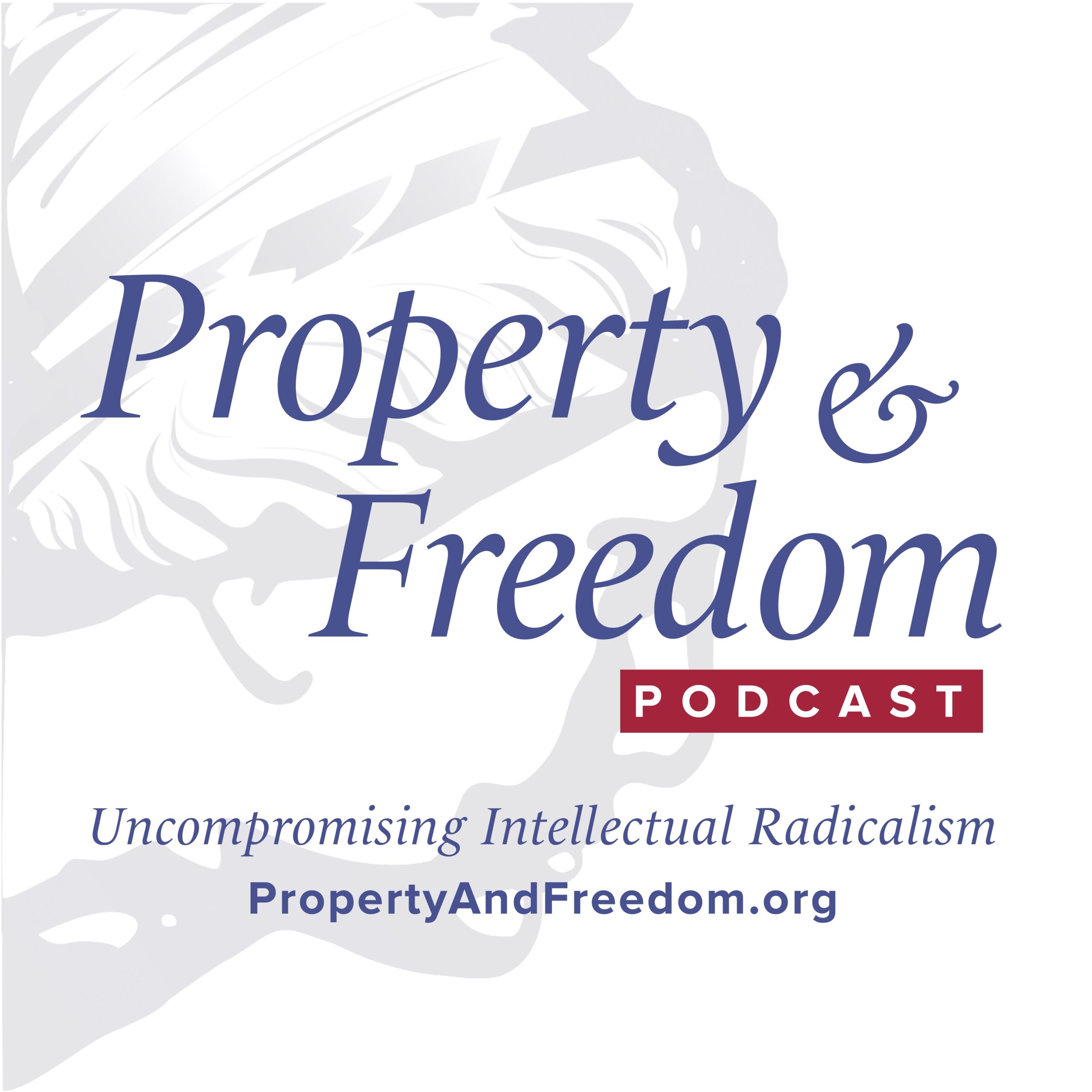


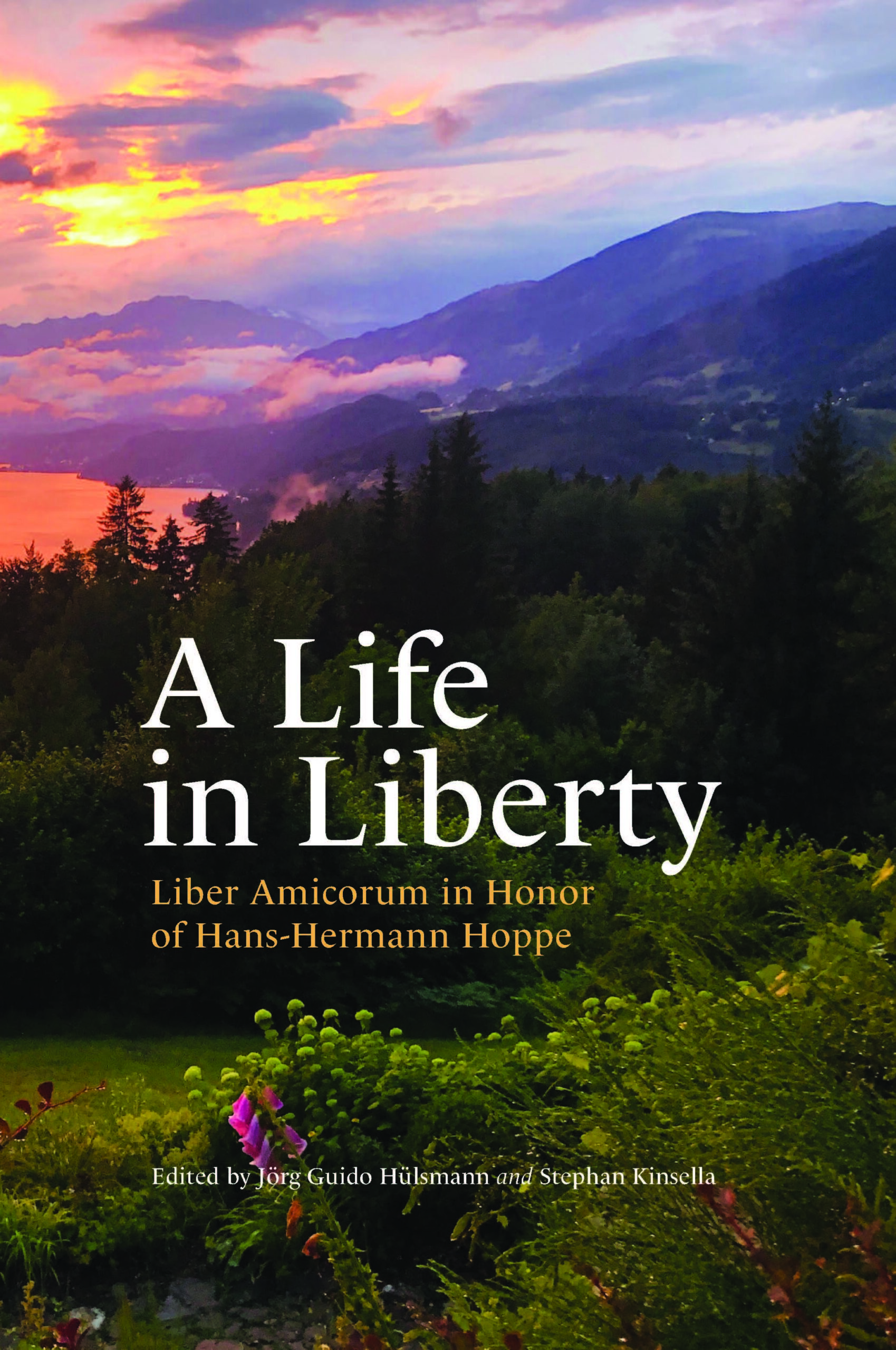
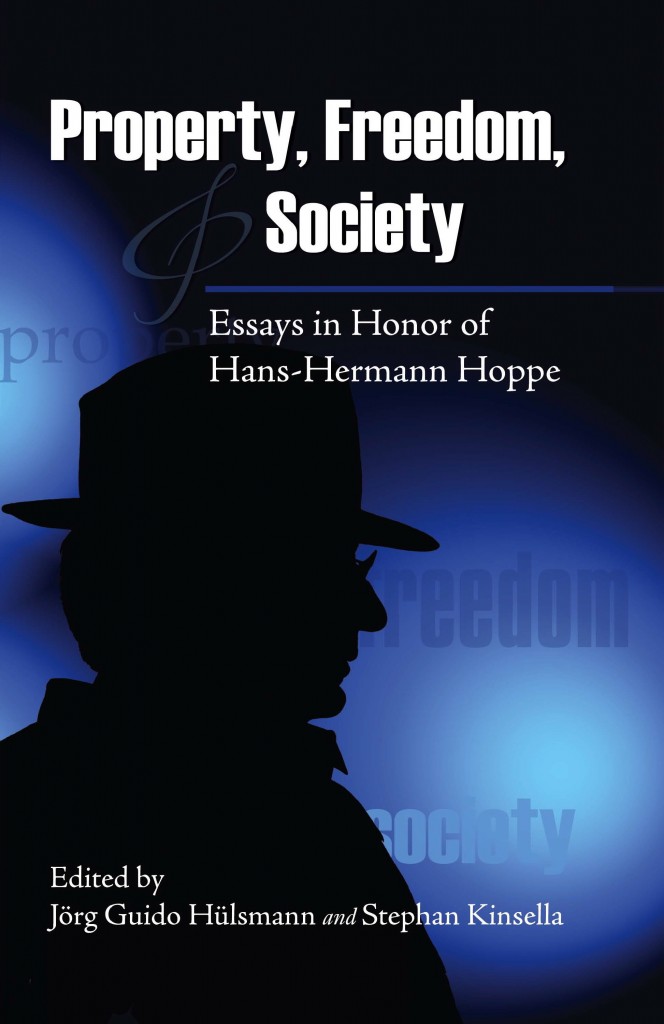
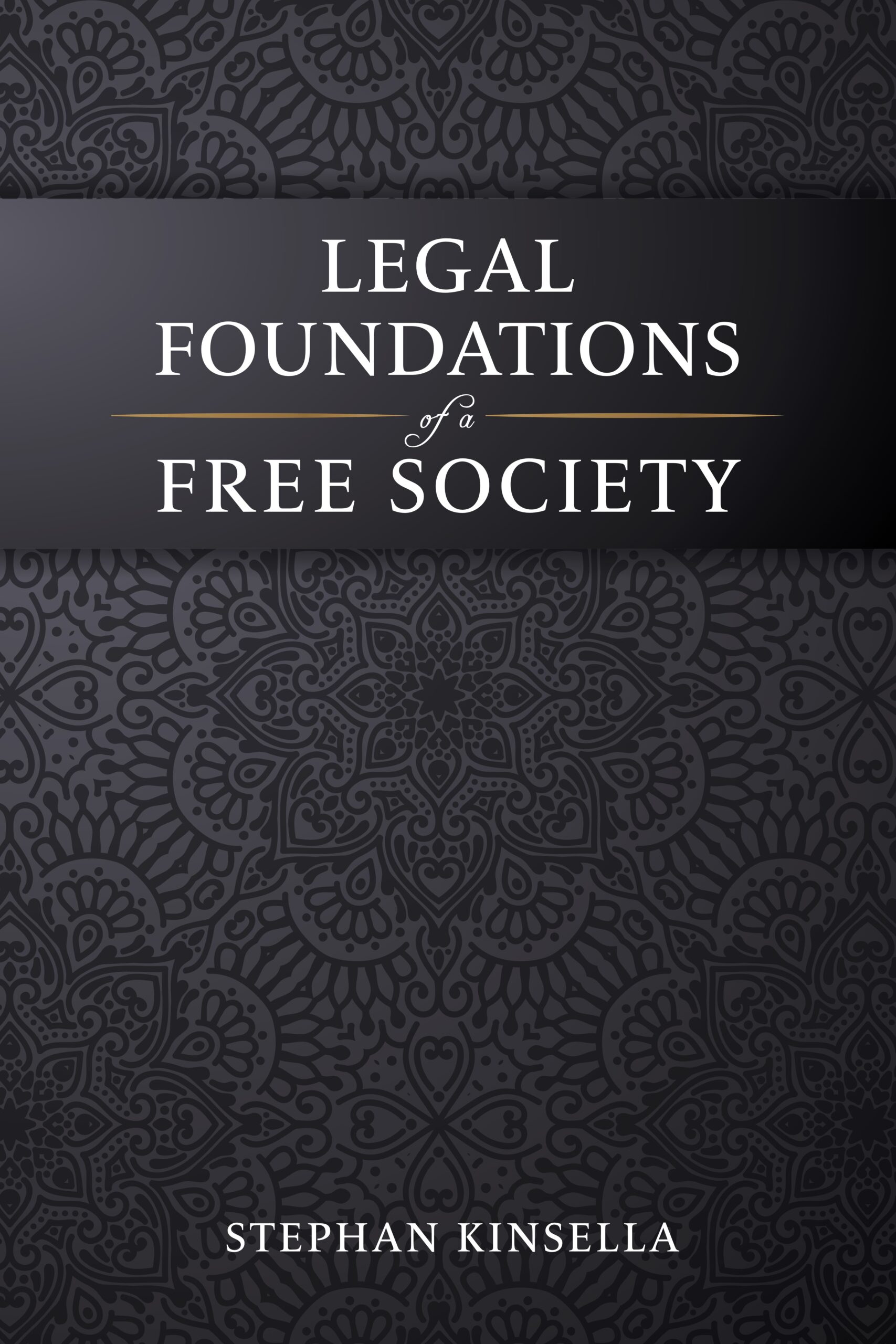

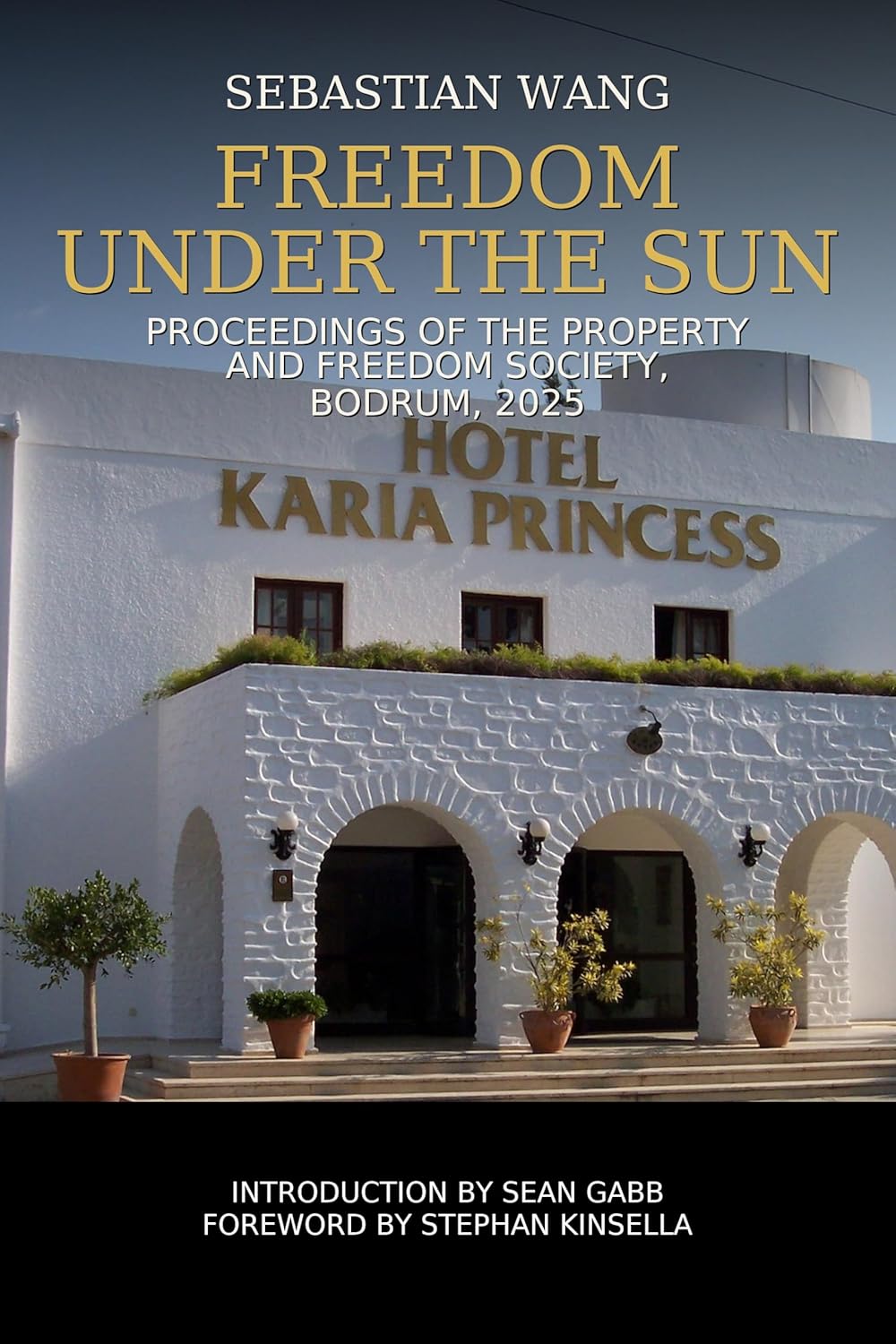



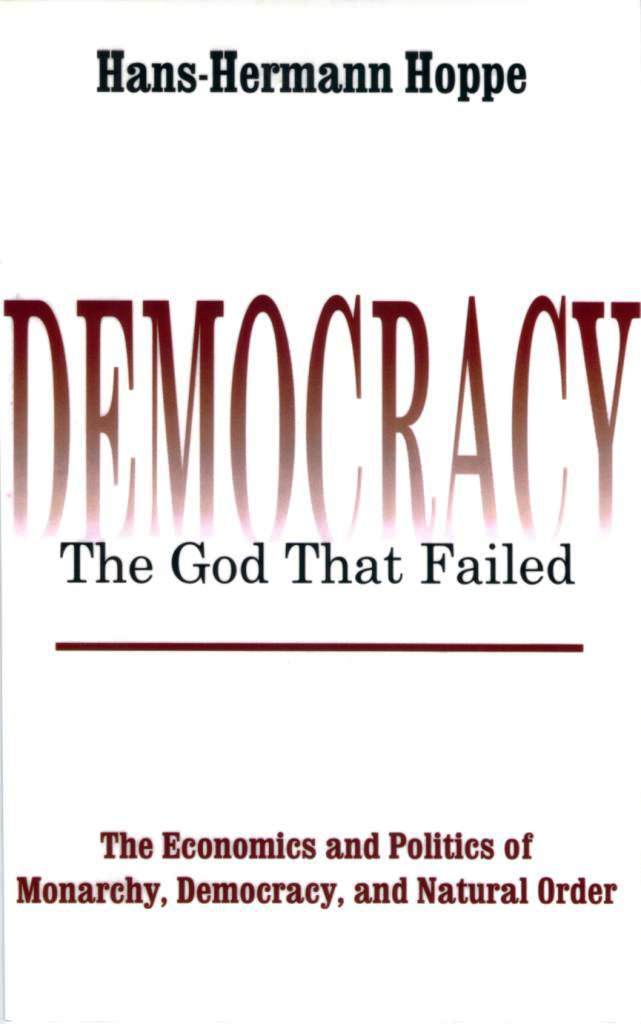


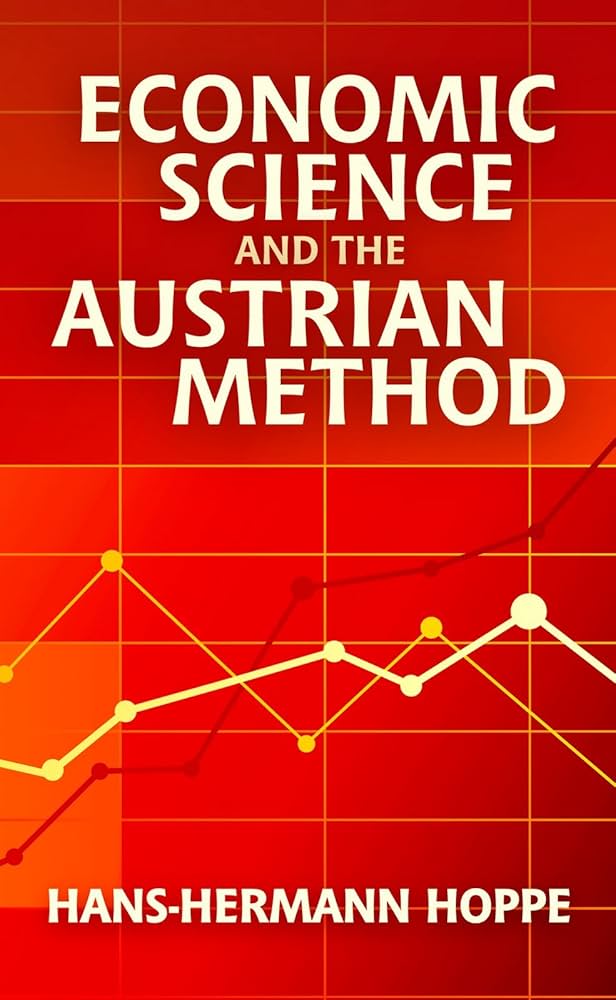
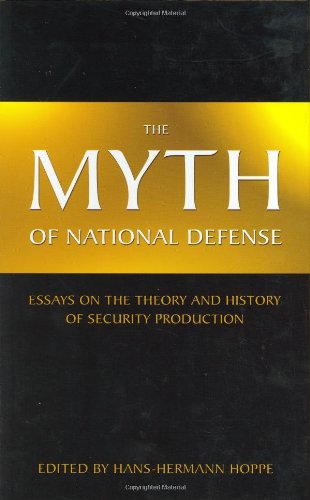
You must log in to post a comment. Log in now.